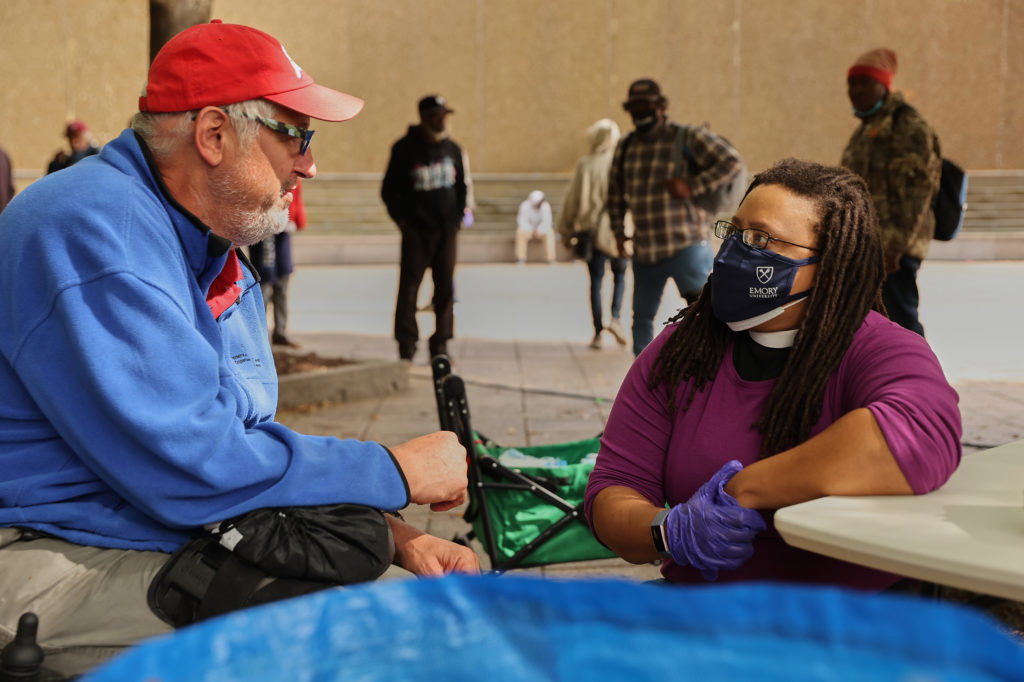The Rev. Kim Jackson of the Diocese of Atlanta is running for a seat in the Georgia State Senate. She serves the homeless at the Church of the Common Good.
She is standing in a Democratic safe seat for District 41, currently held by the Democratic leader of the state senate, who is stepping down.
If she is successful in the state-senate elections on Tuesday, which are held alongside the presidential election, she will remain minister of the church, and also be the first openly lesbian state senator. She promises to fight for the rights of LGBTQ rights and women’s reproductive rights, alongside her “priorities” of expanding health care and improving public education.
Ms Jackson said that she was reasonably confident in her race, but “the country has a lot to worry about.” Since she was a child, she has had a “twin calling” of serving as a priest and holding elected office, she said.
Them:
31 percent of LGBTQ+ candidates this cycle are people of color, compared to ten percent of all candidates in 2018. Once again, the “virtuous cycle” principle applies: As more of these candidates win, more aspirants will be inspired to run.
That’s exactly what Reverend Kim Jackson, an Episcopal priest living in Stone Mountain, believes will happen after she becomes the first openly LGBTQ+ member of the Georgia State Senate next year.
…
Jackson easily won her four-way primary this June with the support of over 50 percent of voters.
“They said overwhelmingly yes to this out Black queer lesbian with locks in Georgia, because I think Georgia is a lot different than what you probably see on the national news,” she says.
“I feel like we have a peer pressure campaign running right now,” the Rev. Jackson tells me. “People are excited about voting.”
On a recent Sunday, at the park where she leads the Church of the Common Ground — an Episcopalian congregation she describes as “wall-less” and that, in ordinary times, is made up of both homeless and housed parishioners — the Rev. Jackson overheard at least “five different (homeless) parishioners saying to others, ‘When are you going to vote?’”
Though she emphasizes that the push to participate in the democratic process is “very much internal to (the homeless) community,” she was instrumental in getting these people registered in the first place.
“The real work,” she says, was helping the homeless understand why it was beneficial to get an identification card, a process that automatically registers one to vote in Georgia. The Rev. Jackson and others explained to the unhoused that having identification and an address would allow them to receive and cash the federal government’s stimulus checks.

